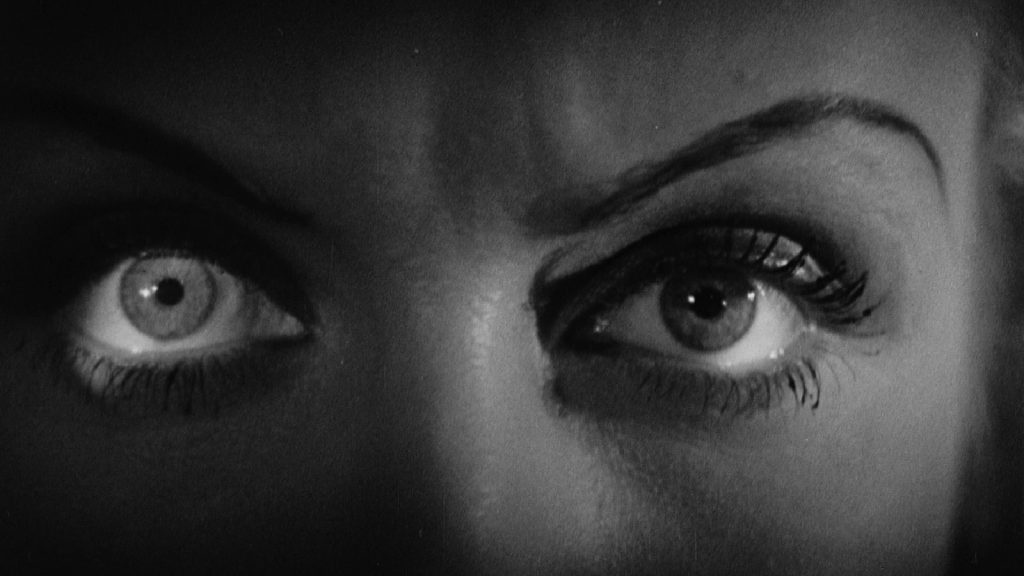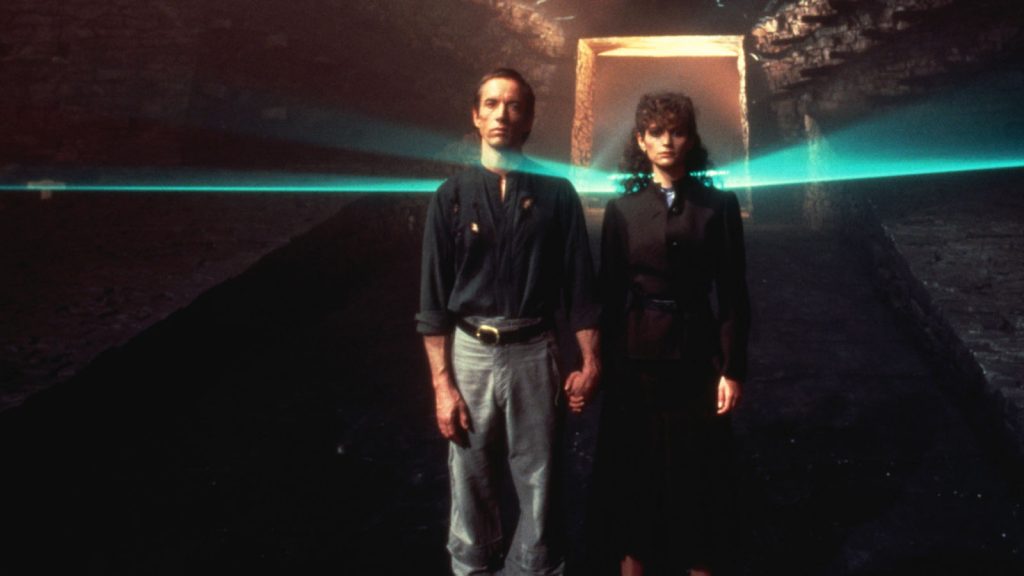
Two young lovers travel by car through a foreign country. They quarrel, then make up, pledging their love by burying a pair of coins beneath a tree. Then, at a petrol station through which thousands pass daily, the woman vanishes. Hours pass, days pass, years pass. Even after finding a new partner, the man still searches for his vanished love, until the day comes when he is offered a proposal—one that will grant him the knowledge he’s long sought, and will, in a sense, grant the lovers a belated reunion.
Reduced to such a synopsis, The Vanishing assumes the character of a fable or myth, but if you’ve seen the film in its original 1988 European co-pro iteration—its director, George Sluizer, later helmed an American remake that pales in comparison—you know that no amount of context can diffuse its profoundly harrowing, incremental intensity. What’s more, the above outline describes only half the story: for every scene depicted from the lovers’ point of view, there is a matching scene that follows the preparations, execution, and aftermath of the vanishing as experienced by the person responsible for it. Sluizer’s ingenious approach provides equal opportunity to identify with both protagonist and antagonist.
The film was based on a novel by Tim Krabbé, though he and Sluizer fell out over the details of its adaptation. There’s a sinister symmetry to this, given that the young couple hail from Krabbé’s homeland, the Netherlands, while the antagonist is, like Sluizer, French-born. Indeed, The Vanishing is rife with such binaries: the couple’s interactions are heavily gendered—a key scene finds the man ignoring the fuel gauge’s warnings, and then, when the car predictably runs out of gas, he tells the woman she’s being hysterical—while protagonist and antagonist, both men, are aligned in their twin obsessions.
The Vanishing is so consistently soul-chilling: why keep returning to it? Mirroring the perfect crime at its core, the film is immaculately crafted, blending bold structural innovation with classical, Hitchcock-worthy storytelling. There are so many elegant touches, such as the Tour de France commentary cheerfully emanating from every radio while tensions surge in the first half, or the way Sluizer films the antagonist’s rehearsals from a God’s-eye view, as though looking down into a grave. There’s also Henny Vrienten’s moody jazz score, which includes strings, keys, and electric guitar, but is distinguished by the slippery sound of its fretless bass.
But I think the aspects of the film that are most haunting, that lure me back every few years, are precisely those that topple its genre designation from neo-noir into horror. It’s in the purity of the antagonist’s malevolence, and the “eternal uncertainty” of which he speaks. It’s in the woman’s dream of being trapped inside a golden egg, recalled while passing through a long, dark tunnel—followed by her request that the man promise never to abandon her, both freighted with the burden of prophecy. It’s in the realization that, despite the predominant air of realism, The Vanishing is ultimately a Gothic love story, reaching its natural conclusion with the perverse fulfillment of a lover’s contract. 🩸

is a freelance critic and playwright.
Trouble Every Day (2001) opens with Tindersticks’ swooning, doomy song of the same name enveloping the image of two figures—neither of whom are seen again—making out in the back seat of a car, their hands and mouths...
BY JOSÉ TEODORO | October 20, 2024
The English title of Christian Tafdrup’s third feature initially reads as a strategy to draw horror fans, a pleading form of genre assurance that the film’s anodyne original Danish title, Gæsterne, or The Guests, cannot offer.
BY JOSÉ TEODORO | September 12, 2022
The enduring allure of Southern Gothic seems inextricable from the biblical entropy that haunts its storytelling, segregating it from the vagaries of time and culture wars like an oppressively protective porch mama.
BY JOSÉ TEODORO | August 8, 2022

This pre-Code offering packs a lot of story into its typically brisk running time, with several plot threads weaving together a (not always successful) tapestry of spooky and criminal doings.
READ MORE >
BY ANN OLSSON | Month 00, 2021

In what could be the fastest-resulting rape revenge movie, a drunken lout brutally forces himself on Ida, the young woman who doesn't return his affections, during a party over Labor Day.
READ MORE >
BY LAURA KERN | Month 00, 2021

Beast is a lot of movies in one package - fractured fairy tale, belated-coming-of-age story, psychological drama, regional horror film - but above all it's a calling card for its leading lady, Jessie Buckley.
READ MORE >
BY LAURA KERN | Month 00, 2021